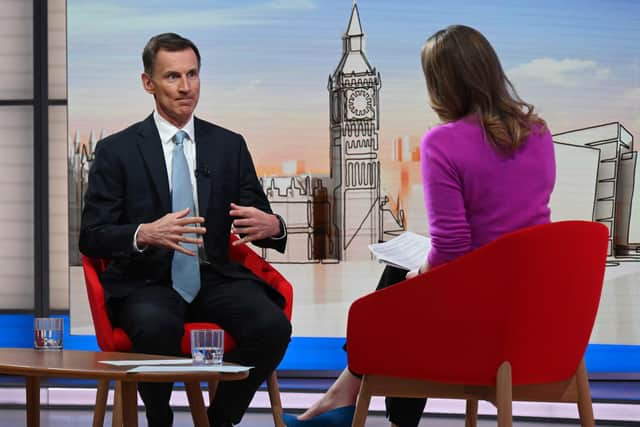Spring Budget: Reforming childcare key to tackling nation's economic inactivity woes - Beckie Hart
In particular, with recession looming and a cost-of-living crisis in full swing, firms are hoping that the Chancellor will stand at the despatch box on Wednesday and announce measures that tackle two crucial issues that are holding them back: labour shortages and capital allowances which are about to become a lot less generous.
Since the pandemic, businesses have been struck by a perfect storm of low unemployment rates, record high job vacancies, and a surge of economic inactivity – those who are not in work and not looking for work. Solving this problem is essential as economic growth fails without the people to deliver it.
Advertisement
Hide AdAdvertisement
Hide AdWe at the CBI believe that the main way to tackle this crisis is reforming childcare. The combined pressures of affordability and availability mean that thousands of parents every year are dropping out of the workforce or turning down opportunities to take on more paid hours. In fact, research from the ONS shows that there are 387,000 people who are looking after family at home but would like to work.


Solving this issue is essential but also long overdue. Despite introducing 30 hours of free childcare a week for three- and four-year-olds during school term time in 2017, childcare in the UK has never been properly funded.
We remain behind the pack, with a British family – with two parents earning – spending around 19 per cent of their net household income on childcare, compared to around 1 per cent in Germany, 5 per cent in Spain and 9 per cent in France.
Increasing funding for the existing childcare provision for three-and four-year olds and expanding free childcare hours to cover one- and two-year-olds during the budget would help these parents get back into work and boost productivity and growth.
Advertisement
Hide AdAdvertisement
Hide AdThe other big issue firms from Yorkshire and the Humber are worried about - corporation tax - is equally if not even more challenging.


Despite many only just returning to pre-pandemic levels of business investment, the government is set to damage the country’s competitiveness by increasing corporation tax by six points and scraping the super-deduction - a temporary change to tax relief which allows companies to claim enhanced capital allowances on qualifying plant and machinery assets.
The impact of the super-deduction on investment can’t be understated. With it, the UK had the fifth most competitive tax system in the OECD for capital investment. Without it, we’re back to 30th out of 38.
Replacing the super-deduction with a permanent investment deduction of 100 per cent would get firms of all sizes across the UK investing. This could deliver a significant uplift in capital spending that will not only pay for itself over time but bring in higher revenues for our region and the entire country.
Advertisement
Hide AdAdvertisement
Hide AdFirms will be paying careful attention to the Chancellor. If he ignores the pleas of businesses, then he will have let labour shortages and uncompetitive corporation tax rises continue to hurt firms and jeopardised the UK’s huge potential for economic growth and that’s something none of us want.
Beckie Hart is CBI regional director for Yorkshire and Humber.